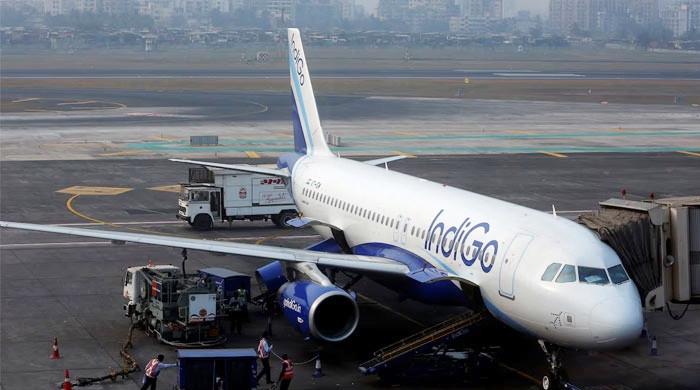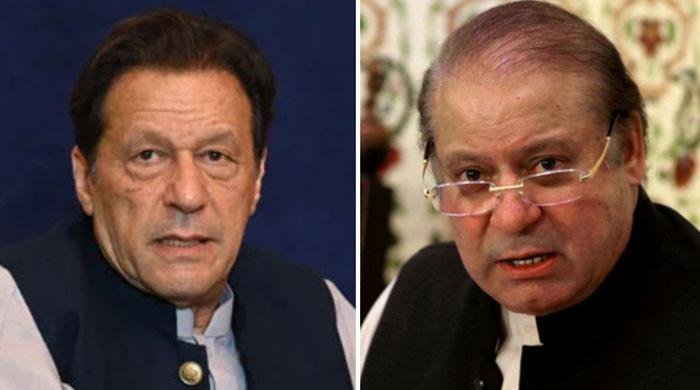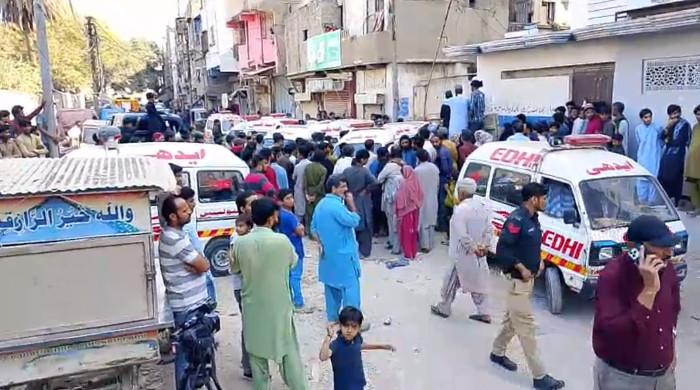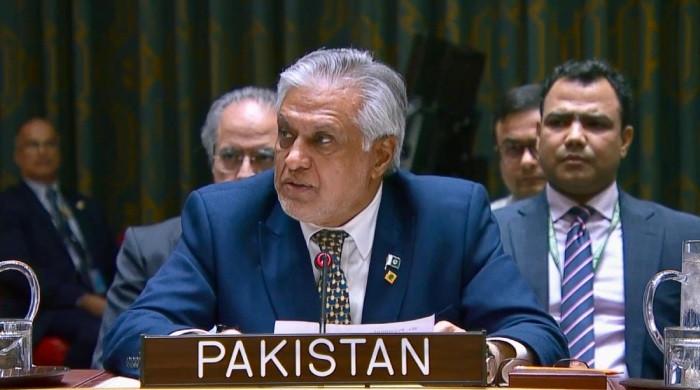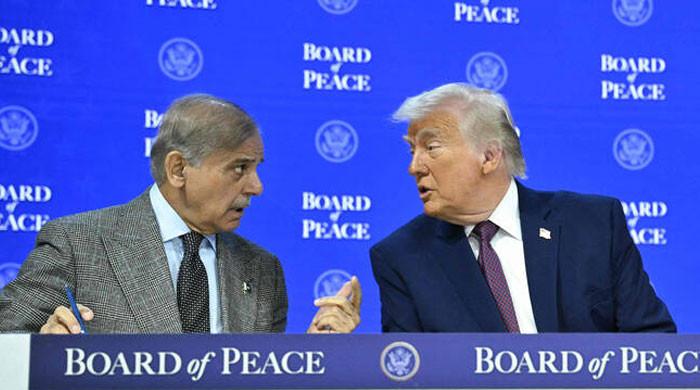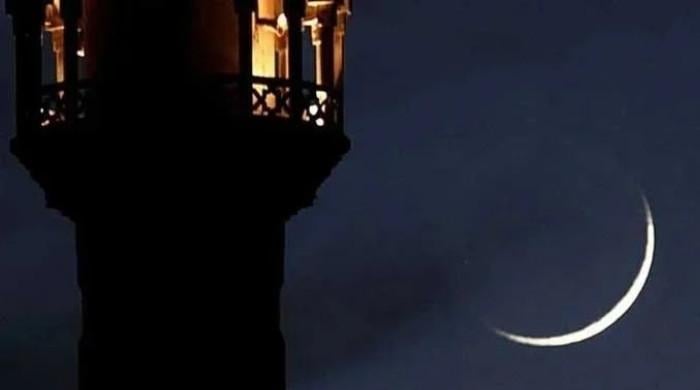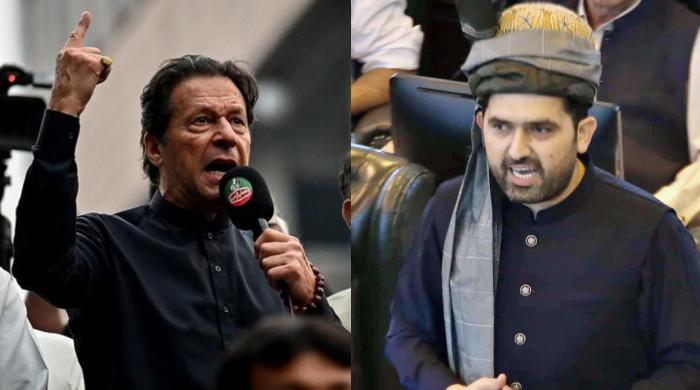Quadrilateral meeting in Moscow calls for stable, terror-free Afghanistan
Pakistan, China, Russia and Iran agree on enhancing coordination, collaborative action to combat terrorism
October 07, 2025
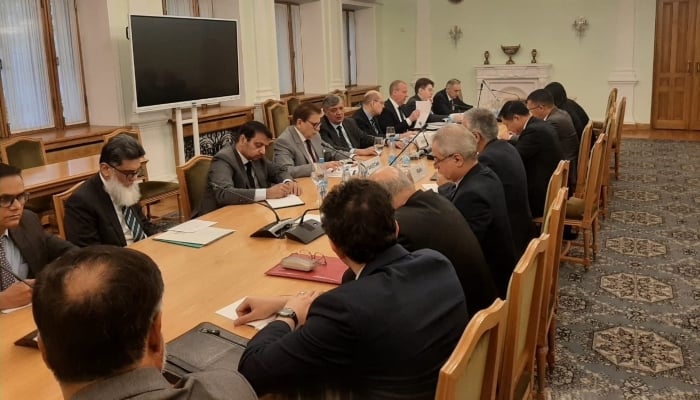
- Moscow talks stress sovereignty and stability.
- Pakistan, China, Russia, Iran urge joint action.
- Ambassador Sadiq calls for coordination against terrorism.
ISLAMABAD: The Quadrilateral Meeting of Special Representatives for Afghanistan, comprising Pakistan, China, Russia, and Iran, convened in Moscow on Tuesday to deliberate on regional peace and security.
The participating states unanimously reaffirmed their commitment to a stable, sovereign, and peaceful Afghanistan free from terrorism and external interference.
Pakistan’s Special Representative for Afghanistan, Ambassador Mohammad Sadiq, said on X: “The participating states unanimously reaffirmed their steadfast commitment to a stable, sovereign, and peaceful Afghanistan, underscoring the necessity of a country free from the scourge of terrorism and external intervention.”
He added that a key concern was the continued presence of designated terrorist organisations, including Tehreek-e-Taliban Pakistan (TTP), Balochistan Liberation Army (BLA), Eastern Turkistan Islamic Movement (ETIM), Jaish al-Adl, Daesh, and al-Qaeda.
“In light of this shared threat, the nations emphasised the critical importance of enhanced coordination and collaborative action to combat terrorism in all its manifestations,” Ambassador Sadiq stated.
The meeting reaffirmed the shared objective of preventing Afghanistan from again becoming a haven for militant groups and highlighted the importance of sustained regional cooperation to ensure peace and stability.
Bilateral engagements in Moscow
Ahead of the quadrilateral consultations, Ambassador Sadiq met his Iranian counterpart Ambassador Muhammad Reza Bahrami, in what he described as a “great meeting”.
“We held in-depth discussions on the latest developments in Afghanistan and exchanged views on shared concerns, particularly the persistent threat of terrorism,” he said, adding that “both sides emphasised the importance of continued dialogue and coordination to address common challenges.”
He said the two sides also “explored avenues for strengthening bilateral cooperation and enhancing regional engagement to support stability and security.”
In another meeting, Ambassador Sadiq called his discussion with Chinese counterpart Ambassador Yue Xiaoyong “productive”, saying: “We discussed regional security, counter-terrorism cooperation, and humanitarian concerns in Afghanistan, highlighting the importance of a coordinated approach to promote lasting peace and stability in the region.”
He noted that the meeting “underscored the strong partnership between Pakistan and China in addressing shared challenges and advancing regional development.”
Ambassador Sadiq also met his Russian counterpart Ambassador Zamir Kabulov in Moscow.
“The discussions were focused on measures to promote regional cooperation on Afghanistan,” he said, adding that Pakistan’s Ambassador to Kabul, Ubaid ur Rahman Nizamani, was also present.
The Moscow consultations come amid Pakistan’s continued calls for the Taliban administration in Kabul to act decisively against terrorist entities operating from Afghan soil.
Prime Minister Shehbaz Sharif recently warned that Afghanistan “must choose between siding with terrorists or standing with Pakistan,” reaffirming that Islamabad would maintain zero tolerance towards militancy and Indian-sponsored proxies.
At the sixth Trilateral Foreign Ministers’ Dialogue earlier this year in Kabul, Pakistan, China, and Afghanistan pledged to deepen cooperation against terrorism and strengthen ties in trade, transit, regional development, health, education, culture, and counter-narcotics, along with extending the China–Pakistan Economic Corridor (CPEC) to Afghanistan.
Deputy Prime Minister Ishaq Dar, during the same meeting, urged Kabul to take “concrete and verifiable measures” against banned organisations such as the TTP, BLA, and Majeed Brigade, reaffirming Pakistan’s commitment to regional peace and collective security.




